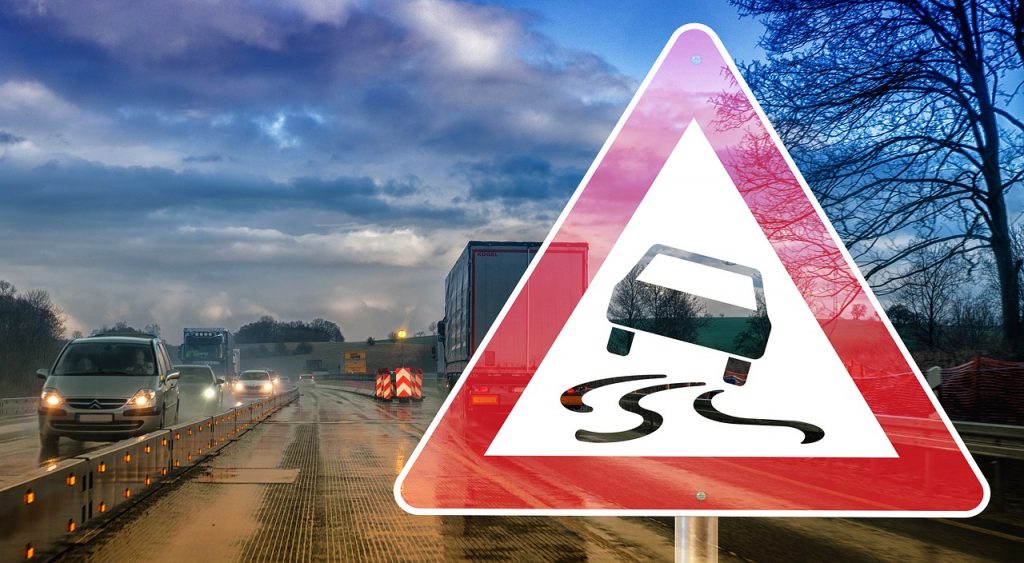NRSC Calls For Speedy Implementation Of ‘Safe System’ Approach Ahead Of World Day Of Remembrance For Road Traffic Victims

HOPES PROPOSED NEW POLICY WILL REDUCE ROAD FATALITIES
The National Road Safety Council (NRSC) is urging the speedy implementation of the Safe System Approach after it was revealed that up to November 17, 2021, 403 persons have been killed in 359 fatal crashes on Jamaica’s roads. This is a four per cent increase when compared to the corresponding period last year.
The call for the new approach comes ahead of the annual World Day of Remembrance for Road Traffic Victims (WDR), a high-profile global event to remember the many millions who have been killed and seriously injured on the world’s roads and to acknowledge the suffering of all affected victims, families and communities – millions added each year to countless millions already suffering: a truly tremendous cumulative toll. WDR is commemorated on the third Sunday of November each year, and this year it falls on November 21.
The Safe System approach was first publicly announced by Prime Minister Andrew Holness last month as part of measures to include Jamaica’s participation in adopting and implementing the new Global Plan developed by the World Health Organization (WHO) and the United Nations Regional Commissions, in cooperation with partners in the United Nations Road Safety Collaboration and other stakeholders.
The Prime Minister made the announcement as the keynote speaker for the global WHO event. He committed to a policy that prioritizes and implements an integrated Safe System approach that squarely positions road safety as a key driver of sustainable development. The approach is in line with plans by the WHO which calls for the international community to take actions that will help the world hit the target of a 50 per cent reduction in the number of road traffic deaths and serious injuries by 2030.
“With more than 400 fatalities on our roads with the year still having another six weeks left, reducing fatalities on our roads has to be a priority. For Jamaica, motorcyclists, cyclists, and pedestrians account for 59 per cent of fatalities in road crashes and so this must be factored into the conversation,” noted Paula Fletcher, Executive Director, NRSC.
“Many who survive are sometimes left with injuries that affect them for the rest of their lives. Also, the after effects of road crashes sometimes linger for years. Therefore, the Safe System approach which aims to develop a road transport system that is better able to accommodate human error by providing a safe operating environment – despite human fallibility – and providing effective post-crash care needs to be implemented with alacrity.” She added: “Last month, the Prime Minister, who is also the Chairman of the NRSC committed to implementing this system and we hope the steps are taken as soon as possible because this will reduce fatalities through making our roads safer and also address post-crash care,” she added.
The Executive Director noted that reducing road fatalities was also a part of WHO’s target to reduce road fatalities by 50 per cent by 2030. “This target has already been missed since it was first proposed two decades ago. Jamaica has signed on to this commitment. Therefore, every citizen of this country needs to be onboard with the effort,” she affirmed.
Dr. Lucien Jones, Vice Chairman, NRSC notes that a public private partnership is also needed to help Jamaica reduce its road fatalities. “Every Jamaican has a part to play in reducing road fatalities,” said Dr. Jones. “Our engineers could play their part by how the roads are designed and constructed. Motorists should play their part in obeying the markings and signings on the road and by reducing their speed. It will take a national effort for us to achieve our target of reducing road fatalities by 50 per cent,” he stated.
Dr. Jones pointed out that in addition to every citizen playing their part, more needs to be done to include the younger generation. “The data shows that the 20-29 age group lead the number of road fatalities annually while the 15-19 age group records the third highest number. In fact, globally, road crashes are the biggest killer of young people ages 15-29. Therefore, any conversations to be had will have to involve the youth because of the statistics that speak to a high fatality,” he stated.
Dr. Jones adds that electronic surveillance, especially along crash hotspots should also be contemplated as a means of reducing road crashes or aiding in the quick response of the emergency services to reduce fatalities. “When it comes to road crashes, speeding and failing to keep on the near-side of the road are the two main causes of fatalities. The electronic surveillance would notify the authorities of those who commit these offences especially repeat offenders and ensure some form of reprimand. In the case of quick response, you would not need to wait until a call is made. Rather, they would be able to act immediately via an alert,” he said.
If the above steps were implemented as a part of the safe system approach, Jamaica would make a good start in meeting the global target of a 50 per cent reduction. “In many countries, the younger generation are a part of the conversation when it comes to road crashes. All these strategies must be working in sync for us to achieve our goal of a reduction in road fatalities,” Dr. Jones noted.
Download The Jamaican Blogs™ App for your Android device: HERE
Remember to share this article on Facebook and other Social Media Platforms. To submit your own articles or to advertise with us please send us an EMAIL at: [email protected]

